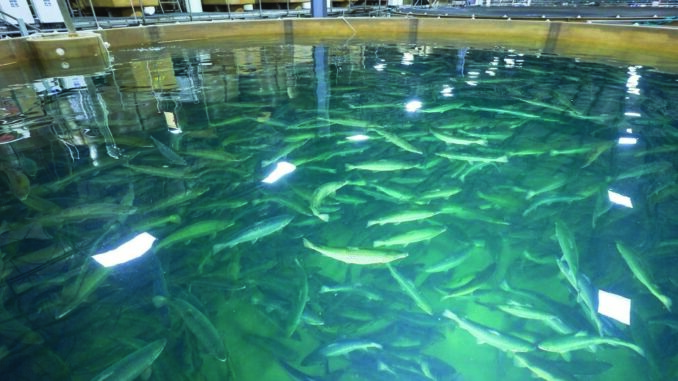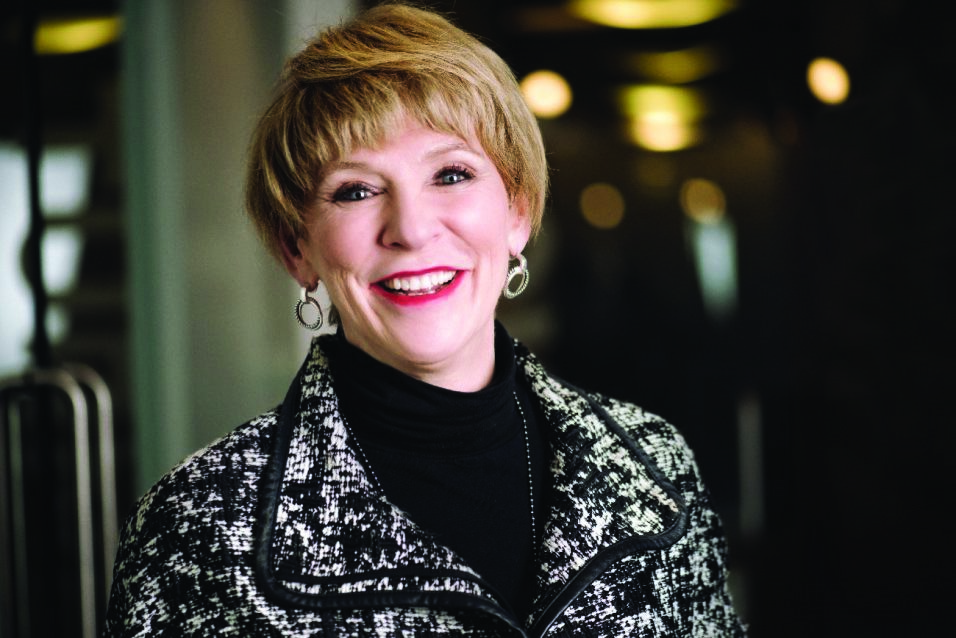
AquaBounty Technologies to create 479,000-square-foot facility
By Jill Sell
This fish story is not about the big one that got away. Ohio successfully reeled in a $200 million investment by AquaBounty Technologies that will create a state-of-the-art, 479,000-square-foot Atlantic salmon fish farm in Williams County. The land-based aquaculture project in the village of Pioneer will create between 100 and 120 jobs. Also of great importance is the fact that the company’s presence gives Ohio a fin up in the relatively new world of biotechnology and fish farming.
Ground was broken for the facility in fall of 2021 and fish stocking will begin late 2023. Headquartered in Maynard, Massachusetts, AquaBounty Technologies is known for its innovations to improve productivity and sustainability. The Pioneer farm will be the company’s biggest large-scale commercial facility, according to AquaBounty Technologies President and CEO Sylvia Wulf. The company’ broodstock for the Ohio farm will be supplied by its facility in Prince Edward Island, Canada.
Atlantic salmon is a popular cold-water fish found naturally in the northern Atlantic Ocean and its connecting rivers. Currently 90% of all farmed Atlantic salmon is imported to the United States from outside the country.
“We want to bring affordable and accessible salmon to the world,” Wulf says of her company, which has been raising mature salmon for more than 25 years. “We think we can affect health through diet.”

AquaBounty’s genetically engineered salmon have just one modification, causing more rapid growth. According to Wulf, biotechnology address a “very specific target goal and delivers specific benefits.” Without GMO, Wulf believes “we would not have affordable and accessible food” in a world where demand for food is growing significantly.
According to Wulf, only about 3% of salmon consumed is wild caught. Fishing quotas and inconsistent populations can be challenges with that method, she says. The majority of salmon eaten is raised in ocean pens offshore in places including Iceland, Norway and Chile. But pen farming has its own problems with fish being exposed to diseases and contaminants and damage to pens allowing fish to escape.
“What we are doing is the next generation of how salmon will be farmed,” says Wulf, noting that a land-based recirculating aquaculture system (RAS) is just one process that is used to protect fish from potential problems. “We have more experience raising mature salmon than any other company in the world.”
AquaBounty’s facilities are bio-secure, so fish are not exposed to outside risks, allowing them to be raised without antibiotics. The company recycles 97 of the water it uses, and that percentage is expected to increase. Wulf also has plans to use salmon by-products for pet food, fertilizer and other products so “all aspects of the salmon are utilized in a positive way.”
AquaBounty, which also has a facility to Indiana, chose Ohio and Pioneer in particular because “all the boxes could be checked,” according to Wulf. Those needed factors include quality and quantity of ground water, effective energy rates and access to talent and labor. She also pointed to a welcoming and coordinated business climate on both local and states levels that offered economic incentives.
“This level and kind of aquaculture is really a new industry for the United States,” says Wulf, whose company sells fresh salmon to retailers, seafood distributors and food service operators. “For Ohio to have a farm like this is really important. As we develop the industry, we can work together with educational institutions, governments and other businesses for everyone’s benefit and growth.”
